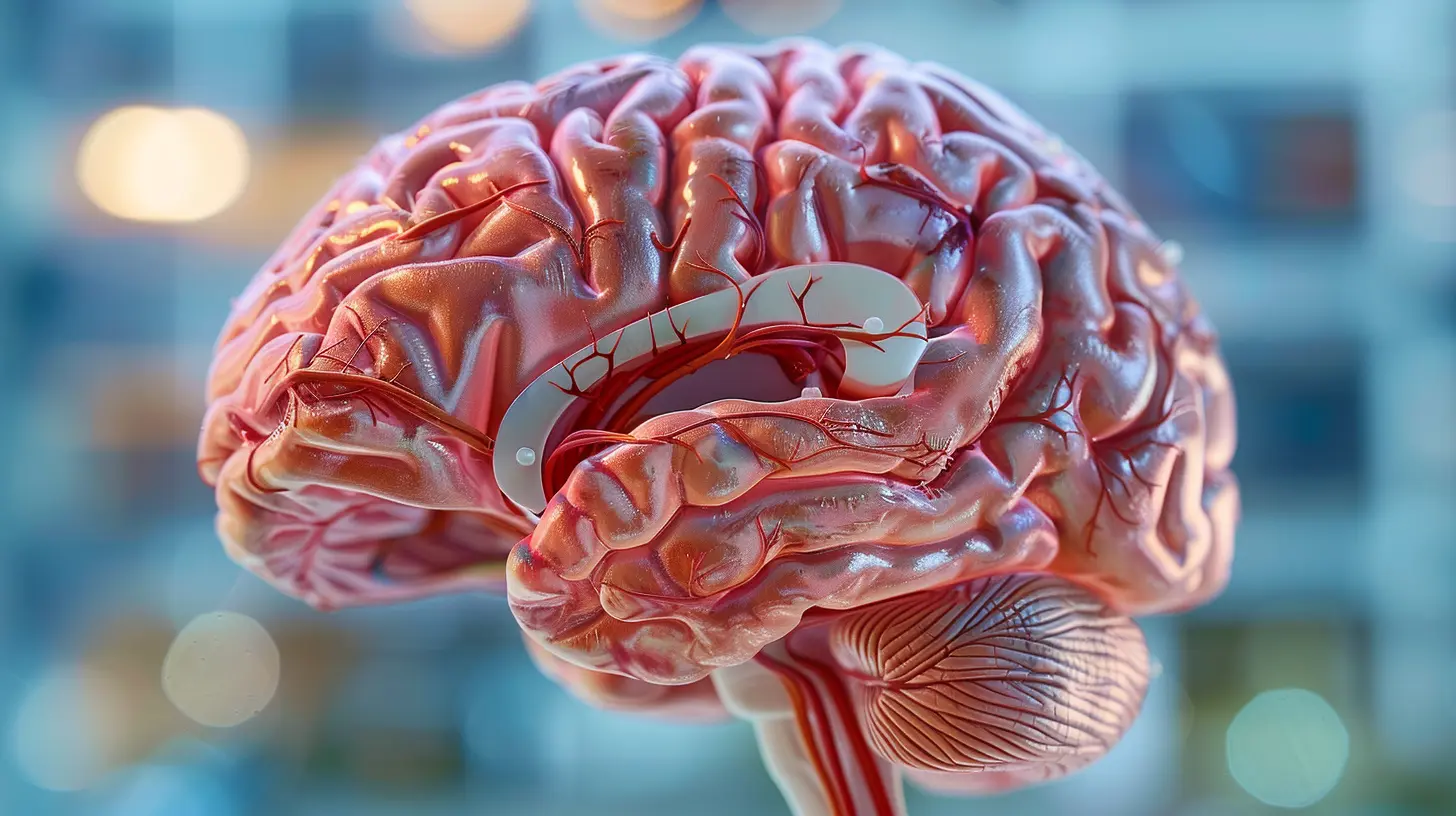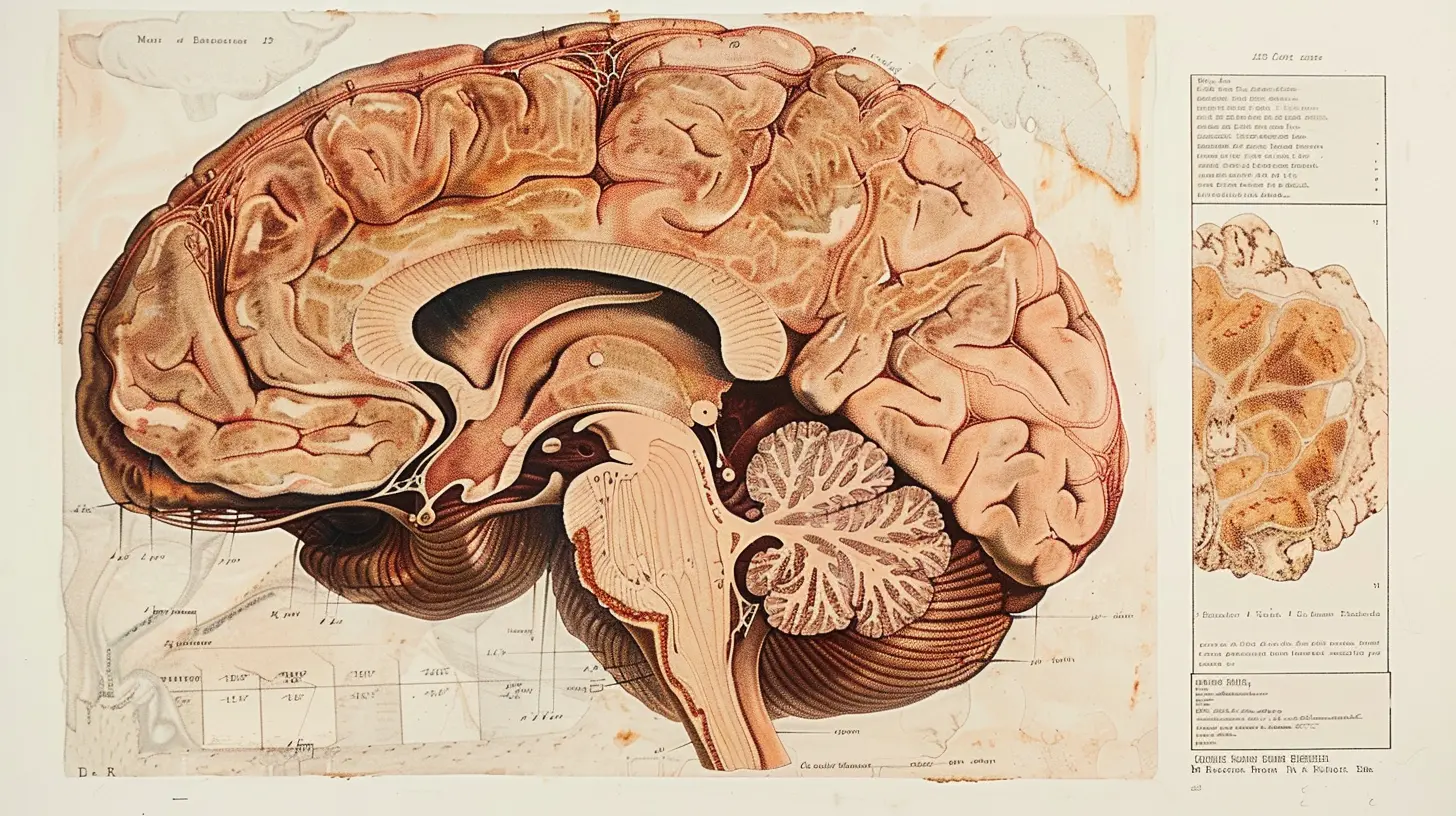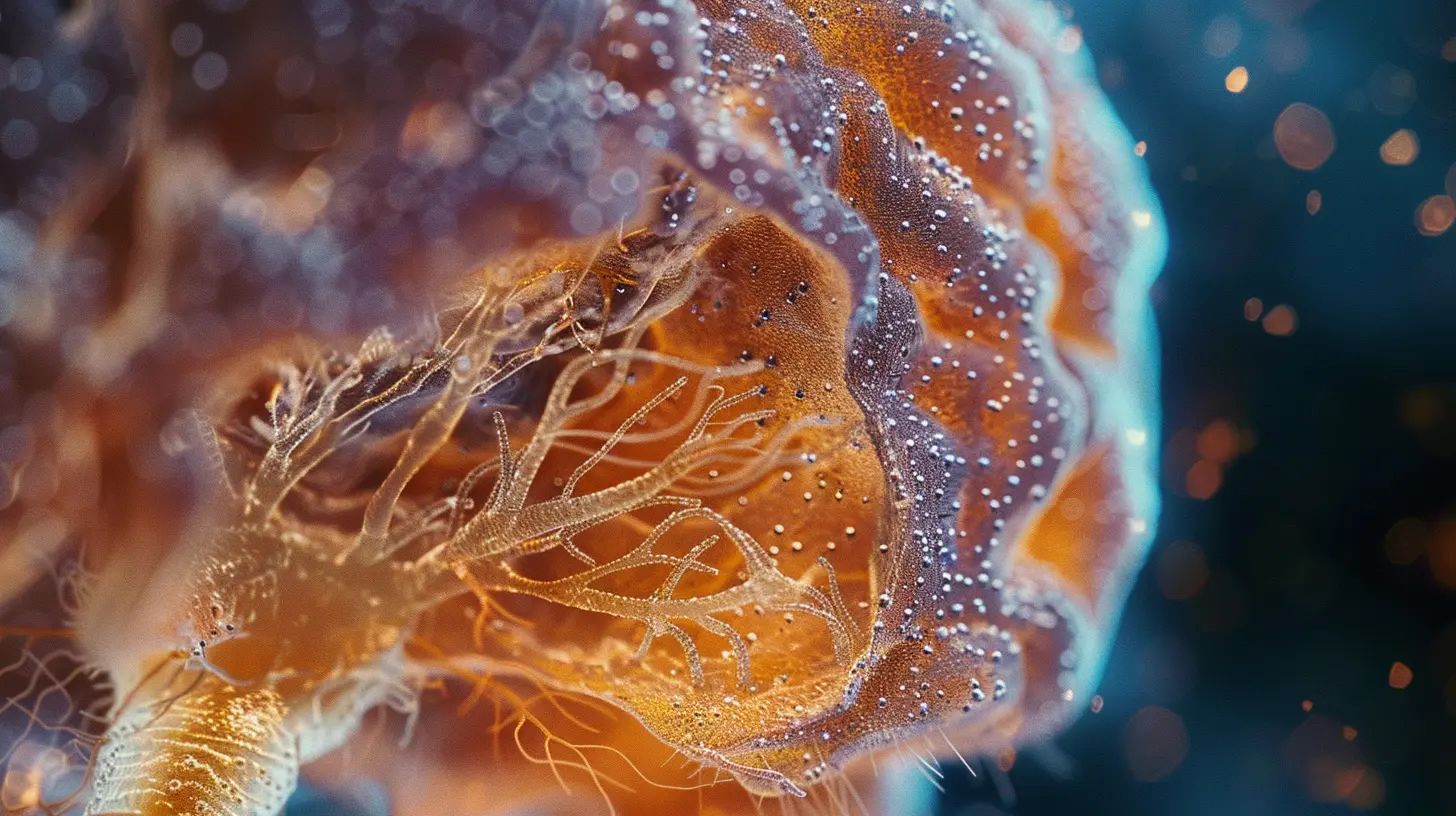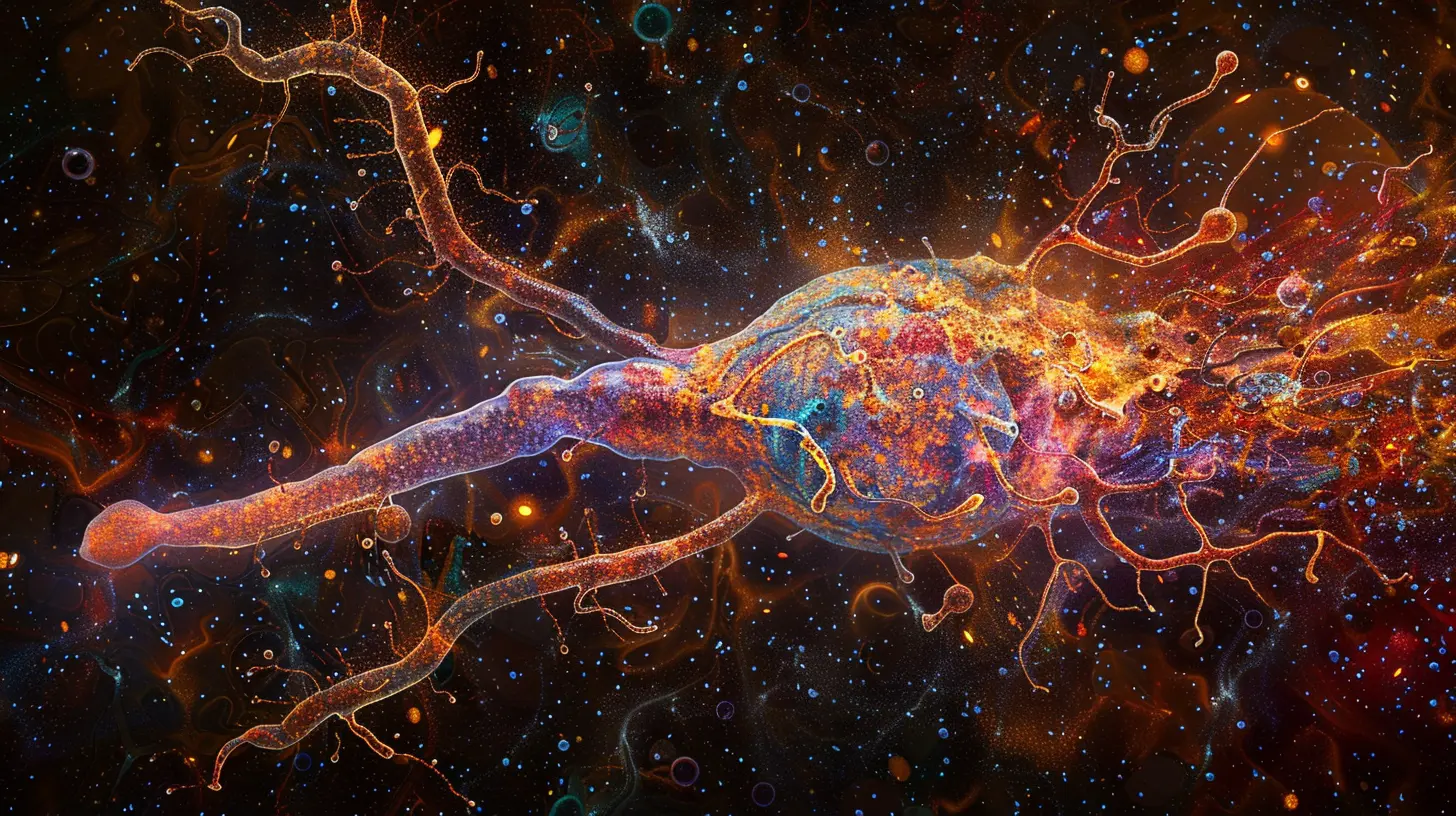The Role of the Cerebellum in Motor Control and Learning
27 November 2024
When you think about moving your body, your brain probably comes to mind first. It’s the command center, right? But there’s an unsung hero in the world of movement that is often overlooked—the cerebellum. This small but mighty part of your brain plays a pivotal role in motor control, coordination, and even learning new skills. So, how exactly does it work, and why is it essential for everything from walking to dancing? Let’s dive into the fascinating world of the cerebellum!

What Is the Cerebellum?
Let’s start with the basics. The cerebellum is a part of your brain located at the back of your head, just under the larger cerebral cortex. Don’t let its size fool you—it makes up only about 10% of the brain's volume, but it contains more than half of the brain's neurons! Think of the cerebellum as the backstage crew in a theater production. The actors (your muscles) and director (your cerebral cortex) get most of the attention, but without the cerebellum quietly coordinating everything, the whole performance would fall apart.Structure of the Cerebellum
The cerebellum consists of two hemispheres, much like the cerebral cortex, and is divided into three functional areas:1. The Vestibulocerebellum – This area is responsible for balance and spatial orientation. It's why you can stand upright without toppling over.
2. The Spinocerebellum – This region deals with regulating body and limb movements. It ensures smooth and precise execution of motor tasks.
3. The Cerebrocerebellum – This section handles more complex motor functions like planning movements and fine-tuning skills as you practice them over time.
Now that we’ve got the technical stuff out of the way, let’s explore how the cerebellum actually impacts motor control and learning.

The Cerebellum’s Role in Motor Control
Have you ever tried to learn a new dance move or play a musical instrument? At first, your movements are clumsy and awkward, but as you practice, they become smoother and more fluid. That’s your cerebellum at work!Fine-Tuning Movements
The cerebellum is responsible for making your movements precise and coordinated. When you decide to take a step, throw a ball, or even blink your eyes, your cerebral cortex sends the initial signal. However, that signal is often too rough or unrefined. The cerebellum steps in to adjust the movement, ensuring it's smooth and accurate. It’s like having a spell checker for your body’s movements.Imagine trying to throw a dart at a bullseye. Your cerebral cortex tells your arm to throw the dart, but without the cerebellum, you’d probably miss wildly. The cerebellum measures the velocity, angle, and force needed for that perfect shot. It’s constantly fine-tuning your motor commands to make sure you hit the target.
Balancing Act
Ever wonder how you can ride a bike without falling off after a bit of practice? That’s your cerebellum keeping you balanced. Along with the vestibular system (which helps you stay upright), the cerebellum processes information from your muscles and joints to ensure you maintain your posture and equilibrium. If you start to lose your balance, the cerebellum immediately adjusts your body’s position, allowing you to stay steady.Think of the cerebellum as a tightrope walker, constantly making tiny adjustments to keep everything in balance.

The Cerebellum and Motor Learning
Motor control is just one part of the cerebellum’s job. It’s also heavily involved in something called motor learning—basically, how we acquire and refine new motor skills over time. Whether it’s learning to ride a skateboard, mastering a yoga pose, or becoming proficient at typing, this little brain structure is your secret weapon.How Does Motor Learning Happen?
Motor learning happens through a process called trial and error. When you first attempt a new skill, your brain sends out a motor command, and the cerebellum is there to monitor the outcome. If the movement isn’t quite right, the cerebellum makes note of the mistakes and tweaks the motor command for the next attempt. This cycle continues until the movement becomes automatic.Ever hear the phrase “practice makes perfect”? Well, it’s actually the cerebellum that’s making you better with each repetition. Over time, it helps you develop muscle memory, so you don’t even have to think about the skill anymore—you just do it.
Adaptation to Change
Another cool aspect of the cerebellum’s learning capabilities is its ability to adapt to changes in your environment. Let’s say you’re used to playing tennis on a standard court, but you suddenly find yourself on a grass court where the ball behaves differently. Your first few swings might be off, but soon enough, your cerebellum adjusts your movements to match the new conditions. It’s like having a built-in auto-correct feature for your body!Error Detection and Correction
Here’s where the cerebellum gets really interesting. Not only does it help you learn new motor skills, but it also detects mistakes and corrects them in real time. If you’re playing the piano and hit the wrong note, your cerebellum flags that as an error and immediately works to prevent you from making the same mistake again. It’s like a personal coach sitting in your brain, constantly giving you feedback to improve your performance.
The Cerebellum’s Contribution to Cognitive Learning
While the cerebellum is primarily known for its role in motor functions, recent research suggests that it may also contribute to cognitive learning. Some studies have indicated that the cerebellum is involved in tasks like problem-solving, attention, and even language processing.In a way, the cerebellum may act as an all-around optimizer of brain functions, not just motor skills. It helps to make not only your body’s movements more efficient but also your mental processes. Talk about multitasking!
What Happens When the Cerebellum Is Damaged?
So, what happens if this crucial part of the brain gets injured or damaged? Cerebellar damage can result from various causes, including strokes, tumors, or degenerative diseases like Multiple Sclerosis or Parkinson’s Disease. The symptoms can range from mild to severe, depending on the extent of the damage.Symptoms of Cerebellar Damage
1. Ataxia: This is a lack of coordination. People with ataxia often have trouble walking, moving their arms or legs smoothly, or even speaking clearly. Simple tasks like buttoning a shirt or writing with a pen can become incredibly difficult.2. Dysmetria: This is the inability to judge distances or when to stop a movement. For example, if you try to reach for a glass of water, you might overshoot or undershoot the target.
3. Tremors: These are involuntary shaking movements, especially noticeable when trying to perform fine motor tasks like holding a fork or typing on a keyboard.
4. Dysarthria: This refers to difficulty speaking due to impaired motor control of the speech muscles. Speech may become slurred or slow.
The Importance of Rehabilitation
If the cerebellum is damaged, rehabilitation is crucial. Since the cerebellum is heavily involved in motor learning, physical therapy can help retrain the brain to compensate for lost functions. It may not restore everything to its original state, but with time and practice, some skills can be relearned.
The Future of Cerebellum Research
The cerebellum is still a bit of a mystery, but researchers are making strides in understanding its full range of functions. New studies are even exploring its role in emotional regulation and decision-making. As technology advances, we’ll likely discover even more about how this small but mighty part of the brain contributes to our everyday lives.Conclusion
To sum it up, the cerebellum is the unsung hero of motor control and learning. It fine-tunes your movements, helps you stay balanced, and is the reason you can learn and master new motor skills. Without it, even the simplest tasks like walking, talking, or writing would be incredibly challenging. So, next time you marvel at your ability to dance, play sports, or type on a keyboard, remember to give a little silent thanks to your cerebellum. It’s doing a lot of work behind the scenes to make sure you move through life with grace and precision!all images in this post were generated using AI tools
Category:
NeuroscienceAuthor:

Janet Conrad
Discussion
rate this article
14 comments
Zain Hall
The cerebellum is a powerhouse of precision in motor control and learning, seamlessly coordinating our movements and fine-tuning our skills. Its role transcends mere muscle function; it embodies the spirit of adaptability and growth in our brains. Embrace the cerebellum’s influence—mastery awaits through practice and perseverance!
February 9, 2025 at 3:39 PM

Janet Conrad
Thank you for highlighting the cerebellum's crucial role in motor control and learning! Its adaptability indeed plays a key role in our development of skills and precision in movement.
Pilar Chavez
Thank you for this insightful article! The exploration of the cerebellum's role in motor control and learning is fascinating. Understanding its complexities not only enhances our knowledge of neurological processes but also has implications for rehabilitation strategies. Great read!
February 1, 2025 at 3:38 PM

Janet Conrad
Thank you for your kind words! I'm glad you found the article insightful and valuable for understanding the cerebellum's role in rehabilitation.
Kismet Bowman
Fascinating insights! I'm curious about how the cerebellum's role in motor control could influence cognitive processes. Can its functions extend beyond physical coordination into learning and memory?
January 30, 2025 at 5:50 PM

Janet Conrad
Thank you for your comment! Yes, emerging research suggests that the cerebellum may play a role in cognitive processes, including learning and memory, by influencing the timing and coordination of neural activities linked to these functions.
Velvet Simmons
An underappreciated powerhouse, the cerebellum elegantly orchestrates our movements and learning, proving that sometimes the most essential players work behind the scenes. Fascinating!
January 27, 2025 at 4:57 AM

Janet Conrad
Thank you! I completely agree—it's remarkable how the cerebellum's complex functions often go unnoticed while playing a crucial role in our everyday actions and learning processes.
Runehart McVeigh
This article brilliantly highlights the cerebellum's crucial role in motor control and learning. Its intricate connections and functions emphasize how essential it is for coordination and skill development. Understanding the cerebellum not only deepens our knowledge of motor functions but also opens avenues for addressing related disorders. Great read!
January 22, 2025 at 5:38 AM

Janet Conrad
Thank you for your thoughtful feedback! I'm glad you found the article insightful and informative.
Parisa Pace
The cerebellum's integration of sensory input and motor output highlights its crucial role in refining motor skills and facilitating learning.
January 17, 2025 at 4:08 PM

Janet Conrad
Thank you for your insightful comment! Indeed, the cerebellum's ability to integrate sensory information with motor commands is essential for skill refinement and learning.
Gunnar Ramirez
The cerebellum's crucial role in motor control and learning cannot be overstated. Its intricate processing and coordination of movements underscore the brain's complexity, reinforcing the necessity of studying all its components for comprehensive understanding in psychology.
January 12, 2025 at 4:56 PM

Janet Conrad
Thank you for your insightful comment! Indeed, the cerebellum's intricate functions are vital for both motor control and learning, highlighting the importance of holistic approaches in studying the brain.
Delilah McKellar
The cerebellum is a remarkable powerhouse, intricately weaving together motor control and learning. Its precision not only fine-tunes our movements but also shapes our ability to adapt and grow. Embracing its role unlocks new possibilities in understanding how we learn—let's celebrate the brain's incredible capacity for mastery!
January 1, 2025 at 4:38 PM

Janet Conrad
Thank you for your insightful comment! The cerebellum truly is vital for refining our movements and enhancing our learning, highlighting the brain's incredible capabilities.
Bellamy Kirkland
Ah, the cerebellum—nature's way of saying, 'Let me handle the coordination while you focus on snacking!'
December 26, 2024 at 5:15 AM

Janet Conrad
Haha, exactly! The cerebellum keeps our movements smooth so we can enjoy those snacks without a hitch!
Cassandra Kline
Fascinating insights! The cerebellum truly enhances our movements!
December 20, 2024 at 5:43 PM

Janet Conrad
Thank you! I'm glad you found the insights intriguing—indeed, the cerebellum plays a crucial role in refining our movements!
Lola Love
This article effectively highlights the cerebellum's crucial role in coordinating movement and motor learning. Its insights into the cerebellum's functions provide a deeper understanding of motor control, emphasizing its importance not just in movement but also in cognitive processes.
December 15, 2024 at 4:40 PM

Janet Conrad
Thank you for your thoughtful comment! I'm glad the article resonated with you and helped illuminate the cerebellum's vital role in both motor control and cognitive functions.
Dorothy Evans
This article effectively highlights the cerebellum's crucial role in motor control and learning, shedding light on its importance in coordination and skill acquisition. Great insights!
December 13, 2024 at 3:44 AM

Janet Conrad
Thank you for your positive feedback! I'm glad you found the insights on the cerebellum's role in motor control and learning helpful.
Anastasia Hernandez
Thank you for shedding light on the cerebellum's vital role in motor control and learning. It's fascinating how our brains adapt and refine movement. Understanding these processes not only enhances our knowledge but also gives hope to those facing motor challenges.
December 2, 2024 at 4:33 PM

Janet Conrad
Thank you for your thoughtful comment! I'm glad you found the article insightful and relevant. Understanding the cerebellum's role can indeed inspire hope for those facing motor challenges.
Karen McCool
Ah, the cerebellum—the body’s personal trainer! It keeps us balanced and coordinated, proving that even our brains know the importance of a little muscle memory and motor control workout!
November 28, 2024 at 4:43 PM

Janet Conrad
Absolutely! The cerebellum is crucial for fine-tuning our movements, ensuring balance and coordination through muscle memory and practice. It truly acts as the brain's personal trainer!
MORE POSTS

How Sleep Affects Cognitive Function: What the Research Says

Trauma and Dissociation: A Survival Mechanism Explained

How Personality Shapes Your Response to Failure

The Importance of Early Intervention in Treating PTSD

Identifying Emotional Manipulation in Romantic Relationships

Training for Mental Toughness: Lessons from Elite Athletes

How to Choose the Right Therapist for You

How Memory Works: The Cognitive Mechanisms of Forgetting

PTSD in Veterans: A Personal and Societal Challenge